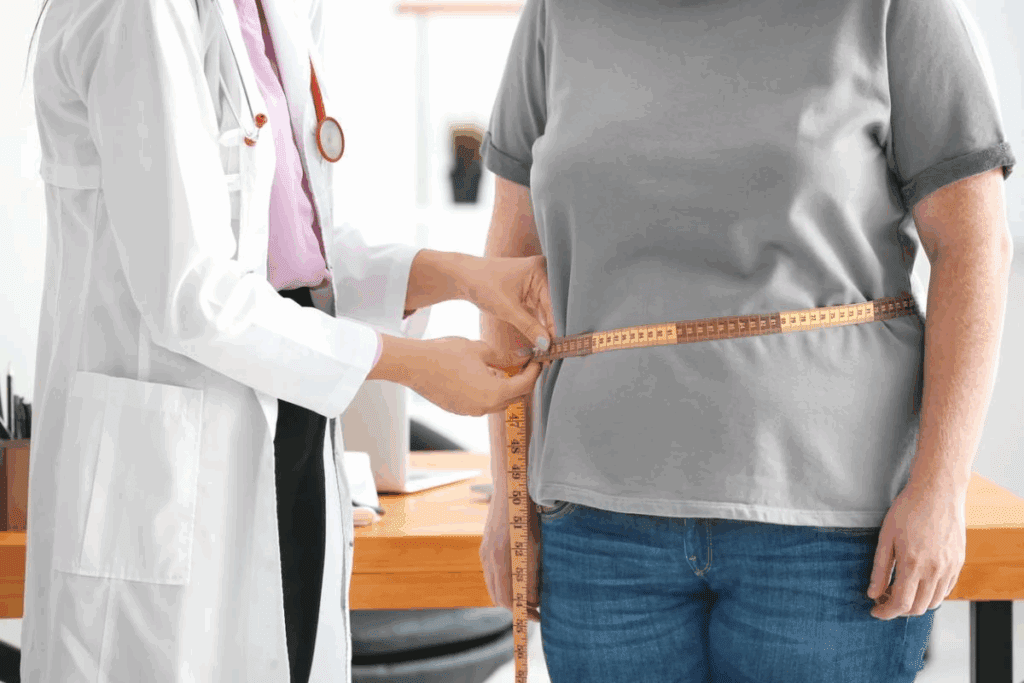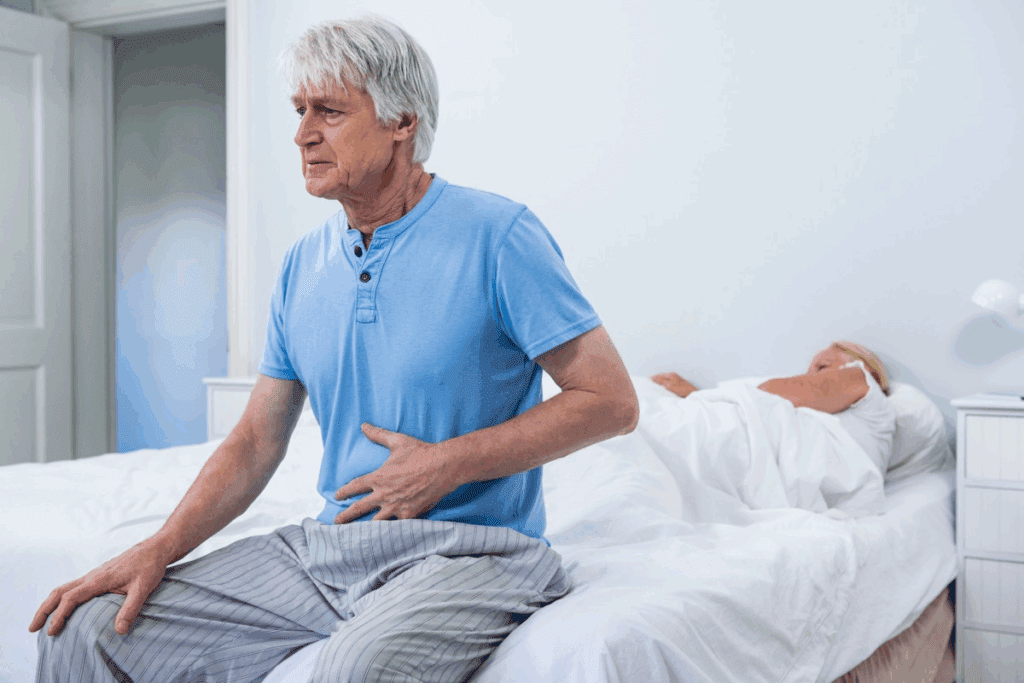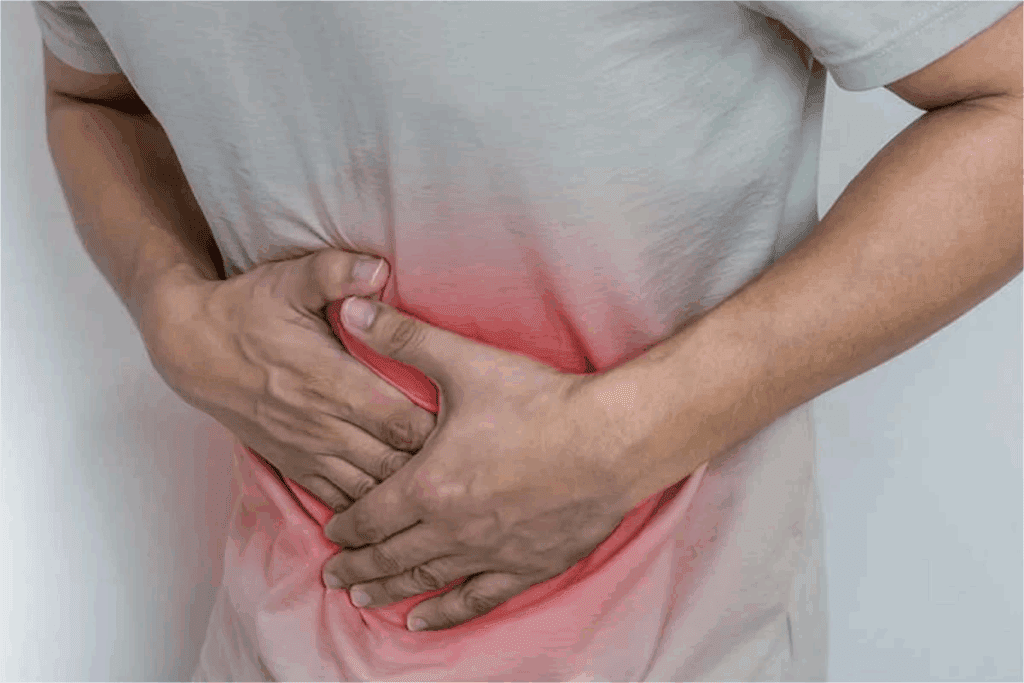Last Updated on November 26, 2025 by Bilal Hasdemir

Gallbladder removal, or cholecystectomy, is a surgery to treat gallstones.do you lose weight after gallbladder removedDo you lose weight with ovarian cancer? The gallbladder stores bile, a liver fluid that helps digest fats. After surgery, some people may notice changes in digestion.
The effect of gallbladder removal on weight loss and diet varies. Some might lose weight at first due to diet changes and less hunger. But, long-term weight loss isn’t guaranteed just by the surgery. Changing your lifestyle and diet is key to managing weight after gallbladder removal.

It’s important to know how the gallbladder works to understand its impact on digestion. The gallbladder is a small, pear-shaped organ under the liver. It plays a big role in digestion.
The gallbladder’s main job is to store and concentrate bile. Bile is a fluid made by the liver that helps break down fats. When food reaches the small intestine, the gallbladder releases bile into the bile ducts.
This bile then flows into the small intestine. There, it helps break down fats into smaller pieces. This makes it easier for the body to digest them.
Bile release is key for absorbing fat-soluble vitamins (A, D, E, and K). It’s also important for digesting dietary fats. Without a gallbladder, the body has to adjust to new ways of making and releasing bile.
Gallbladder removal, or cholecystectomy, is often needed because of gallstones. Gallstones can cause pain, infection, or other problems. Other reasons include inflammation of the gallbladder (cholecystitis) and dysfunction.
| Condition | Description | Treatment |
| Gallstones | Hardened deposits in the gallbladder, often causing pain and complications. | Cholecystectomy or surgical removal of the gallbladder. |
| Cholecystitis | Inflammation of the gallbladder, often due to gallstones. | Antibiotics and cholecystectomy. |
| Gallbladder Dysfunction | Poor functioning of the gallbladder, leading to digestive issues. | Cholecystectomy. |
After gallbladder removal surgery, the body changes how it releases bile. Without a gallbladder, bile goes straight from the liver to the small intestine. This can affect how the body digests fats and might need dietary changes.
People who have had their gallbladder removed might need to eat differently. They might need to eat less fat and eat smaller, more frequent meals. This can help with digestion.

Understanding the gallbladder removal process is key. The cholecystectomy procedure removes the gallbladder. It can be done in different ways, each affecting recovery and diet.
The surgery can be done laparoscopically or through open surgery. Laparoscopic surgery uses small incisions in the abdomen. It’s preferred for less pain and quicker recovery. Open surgery uses a larger incision and is for more complex cases.
The recovery time depends on the surgery type. Laparoscopic surgery lets most people get back to normal in 1 to 2 weeks. Open surgery recovery takes 4 to 6 weeks or more. Knowing the recovery helps plan post-operative care.
| Surgery Type | Recovery Time | Dietary Restrictions |
| Laparoscopic | 1-2 weeks | Liquid diet initially, gradual introduction to solid foods |
| Open | 4-6 weeks | Similar to laparoscopic, with a potentially longer period on a liquid diet |
After surgery, a low-fat diet is advised. A liquid diet is recommended first, then solid foods are added slowly. This helps ease digestion and lets the body adjust.
Knowing about the cholecystectomy procedure and recovery helps prepare for changes after gallbladder removal. It also helps manage expectations about weight loss and diet changes.
Removing the gallbladder can lead to quick weight changes. You might lose or gain weight. Knowing this helps you adjust your lifestyle.
Many people lose weight right after surgery. This is because they eat less and change their diet. The body’s reaction to surgery also plays a part.
Patients often eat less after surgery. They might stick to a low-fat diet to feel better. These changes can help you lose weight at first.
Some people gain weight due to fluid retention. This is usually short-term. Watching your weight and adjusting your diet can help.
| Factor | Effect on Weight | Duration |
| Reduced Appetite | Weight Loss | Several Weeks |
| Dietary Adjustments | Weight Loss | Ongoing |
| Fluid Retention | Weight Gain/Fluctuations | Temporary |
Understanding these factors helps manage weight after surgery. Making smart diet choices and watching your body can reduce negative weight impacts.
Studies on weight loss after gallbladder removal show mixed results. Some say you might lose weight, but others say it’s not a sure thing.
Research on weight loss after gallbladder surgery has mixed findings. Some studies show patients lose a lot of weight after surgery. For example, a study in the Journal of Gastrointestinal Surgery found patients lost about 11 pounds in 6 months.
But other studies say weight loss isn’t the same for everyone. It can depend on how much you weighed before surgery and your eating habits. A review of 15 studies found that while some people lose weight, others might gain or stay the same.
It’s hard to tell if surgery or diet changes cause weight loss after gallbladder removal. Eating healthier is key to managing weight. Patients who eat less fat tend to lose weight.
A diet low in fat is often suggested for those after gallbladder surgery. This is because the gallbladder helps digest fat. Eating less fat means fewer calories, which can lead to weight loss.
People’s experiences with weight loss after gallbladder surgery vary a lot. Some lose weight, while others gain or stay the same.
A study in the Journal of Clinical Gastroenterology found that those who lost weight felt better overall. But, it also noted that some patients gained weight. This shows the need for personalized care and diet advice.
The link between gallbladder removal and weight loss is more complex than many think. Many believe that removing the gallbladder will lead to weight loss. But this isn’t always true.
Many believe gallbladder removal surgery guarantees weight loss. But, this isn’t true for everyone. The impact of cholecystectomy on weight varies significantly from person to person, depending on diet, lifestyle, and health.
Studies show that guaranteed weight loss after gallbladder removal is not proven. A study in the Journal of Gastrointestinal Surgery found that not all patients lost significant weight after surgery.
Some people gain weight after gallbladder removal. This can be due to changes in diet and less physical activity during recovery. The body’s ability to digest fats may also change, affecting weight.
A study in the Journal of Clinical Gastroenterology found that digestive patterns can change after surgery. This can impact weight.
| Factors Influencing Weight After Gallbladder Removal | Description |
| Dietary Changes | Alterations in eating habits post-surgery can affect weight. |
| Physical Activity | Reduced activity during recovery can lead to weight gain. |
| Digestive Changes | The body’s ability to digest fats is altered post-cholecystectomy. |
Gallstones and obesity are closely linked. Obesity is a big risk factor for gallstones. The connection between gallbladder disease and obesity is complex, involving metabolism and hormones.
Research shows that obesity raises the risk of gallstones. This is due to increased cholesterol production and less gallbladder movement. Understanding this link is key to managing and preventing gallbladder disease.
After having a gallbladder removed, people often notice changes in how they digest food. This can make it harder to manage their weight. The body processes fats and absorbs nutrients differently without a gallbladder.
The gallbladder is key for digesting fats. It stores and releases bile into the small intestine. Without it, bile goes straight to the intestine, making fat digestion harder. Patients might need to change their diet to handle these changes.
Key considerations for fat digestion without a gallbladder include:
Bile dumping syndrome can happen after gallbladder removal. It occurs when bile moves too fast into the small intestine. This can cause uncomfortable symptoms and impact metabolism. It’s important to understand and manage this condition to keep a healthy weight.
| Symptoms of Bile Dumping Syndrome | Management Strategies |
| Diarrhea | Eat smaller, more frequent meals |
| Abdominal pain | Avoid foods high in sugar and fat |
| Nausea | Increase intake of soluble fiber |
Adjusting to new digestive patterns after gallbladder removal takes time and dietary changes. Keeping a food diary can help track how different foods affect digestion and health.
Tips for adapting to new digestive patterns:
Understanding and using the right diet is key to managing weight after gallbladder surgery. The body changes how it digests food after surgery. So, it’s important to adjust what you eat.
A low-fat diet is often suggested after gallbladder removal. This is because the gallbladder helps digest fats. Without it, fats can be hard to digest, causing discomfort and digestive problems.
Benefits of a Low-Fat Diet:
A study in the Journal of the Academy of Nutrition and Dietetics showed benefits. People on a low-fat diet after surgery had fewer digestive problems and better weight control.
“A low-fat diet can significantly improve digestive comfort and support weight loss efforts after gallbladder removal.” – Dr. Jane Smith, Gastroenterologist
Changing how often and how much you eat can also help. Eating smaller, more frequent meals can help manage symptoms and improve digestion.
| Meal Frequency | Benefits |
| 3 main meals, 2-3 snacks | Stable energy levels, reduced hunger |
| Small portions | Easier digestion, less discomfort |
Some supplements can help with digestion after gallbladder removal. Bile salts help with fat digestion, and probiotics support gut health.
Always talk to a healthcare provider before starting new supplements. They can make sure they’re safe and right for you.
By using these dietary strategies, people can manage their weight and improve their health after gallbladder surgery.
Exercise and lifestyle changes are key to managing weight and health after gallbladder removal. A healthy lifestyle can help with digestive changes after surgery.
Patients can usually start exercising a few weeks after surgery. It’s important to listen to your doctor about the right exercises. Start with gentle activities like walking.
Initial Recovery Phase: Avoid heavy lifting and bending in the early stages. These can strain your abdominal muscles. Slowly increase your activity to regain strength and improve health.
Combining cardio, strength training, and flexibility exercises is good for weight management. Brisk walking, cycling, and swimming are great cardio options. They’re easy on the joints.
Strength training is important for building muscle. This boosts your metabolism. Focus on exercises like squats, lunges, and push-ups.
Combining a healthy diet with exercise is essential for weight management after gallbladder removal. A diet low in fat and high in fiber helps with digestion and weight loss.
Regularly check your weight and health, and adjust your diet and exercise as needed. Keeping a food and exercise diary helps track progress and find areas for improvement.
Adjusting Your Approach: Be ready to change your approach based on how your body reacts. Getting advice from healthcare professionals or a nutritionist can be very helpful.
After having their gallbladder removed, people often ask if it affects their weight and health. The link between gallbladder removal and weight loss is not simple. It depends on many things like diet, lifestyle, and how the body adjusts without the gallbladder.
Managing weight long-term after gallbladder surgery needs a few steps. Eating right, watching portion sizes, and staying active are key. These changes help avoid weight problems and keep a healthy weight.
It’s possible to live well after gallbladder surgery with the right diet, exercise, and support. The first few months can be tough, but many people adjust well. Knowing what happens after surgery and staying proactive about health helps a lot.
In the end, it’s all about living a balanced life after gallbladder surgery. This approach supports long-term health and wellness. By doing this, people can avoid complications and live a healthy, active life.
Losing weight after gallbladder removal can vary. Some people might lose weight, while others might not. Diet and exercise play big roles in weight loss.
Yes, losing weight after gallbladder removal is possible. Eating healthy and exercising regularly are key. A low-fat diet and controlling portions can help manage weight.
Losing weight after gallbladder surgery isn’t guaranteed. Some might lose weight, while others might gain or see weight changes. A healthy lifestyle is important for managing weight.
To lose weight after gallbladder surgery, eat low-fat foods and eat smaller meals often. Exercise, like cardio and strength training, is also important. Combining diet and exercise is best.
Gallbladder removal itself doesn’t directly cause weight loss. But, the surgery and diet changes can affect weight. Eating healthy and exercising regularly are key for managing weight.
To manage weight after gallbladder removal, eat low-fat foods and eat smaller meals. Practice portion control. Digestive supplements, like bile salts or enzymes, can also help.
Yes, some people might gain weight after gallbladder removal. This can be due to diet changes, less activity during recovery, or other reasons. A healthy lifestyle is important for managing weight.
Obesity is linked to gallstones. Losing weight can lower the risk of gallstones. But, losing weight too fast can increase this risk.
After gallbladder removal, bile production continues. But, it goes straight to the small intestine. This can affect fat digestion and cause digestive issues.
One common myth is that gallbladder removal guarantees weight loss. But, weight loss depends on diet and exercise. A healthy lifestyle is key for managing weight after gallbladder removal.
Subscribe to our e-newsletter to stay informed about the latest innovations in the world of health and exclusive offers!